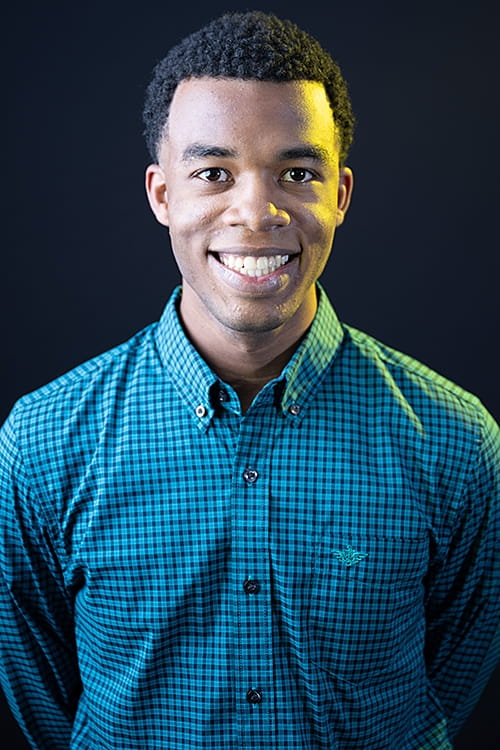
Floyd Evans, Jr., Undergraduate student, computer science and microbiology
Forecasts genetic risk of cancer
“Floyd has been steadfast in his desire to obtain a PhD and become a scientist from the moment I met him. In Floyd’s words, ‘I have always seen myself as a scientist.’ I have no doubt that with his academic ability, intrinsic motivation and scientific curiosity, Floyd will make this desire a reality.” -Lori Adams, director, Iowa Biosciences Academy
Hometown: Tiffin, Iowa
Faculty mentor/advisor: Ben Darbro, MD, PhD, associate professor, pediatrics – medical genetics and genomics, Carver College of Medicine
What is your degree program and expected graduate date? Microbiology, BA – spring 2022; Computer Science, BS – summer 2022
Please describe your research: Small intestine neuroendocrine tumors consist of enterochromaffin cells, which receive an input from the nervous system and secrete the hormone serotonin as a result. These tumors are dangerous, not only because of outcomes associated with cancer metastasis, but also their tendency to oversecrete serotonin. Our lab sequences genes that encode proteins and uses computational tools to find mutated genes in individuals with neuroendocrine tumors. We also use computational analyses, databases, and scientific literature to predict how those mutated genes may contribute to neuroendocrine tumor formation.
In simple terms, why does this research matter? Although small intestine neuroendocrine tumors have historically been rare, the number of cases has been increasing in recent decades. Because most cases have an unknown cause, our lab’s project sheds light on novel genetic variants for neuroendocrine tumor researchers to consider. As we find candidate genes, my supplementary analyses involving protein databases and the literature help us form and propose novel hypotheses that may become the starting points of future primary research.
How soon after starting at the University of Iowa were you able to participate in research? I began research during the first semester of my first year as an undergraduate student.
How has being involved in research made you more successful at the University of Iowa? Research has been a powerful component of my journey as an undergraduate student. Though coursework is crucial for learning facts to understand science, my research experiences at Iowa have taught me how to be a scientist. I appreciate how everyone involved in my research journey has helped me learn how to learn, think logically, grow in my passion for science, and prepare for my future as a scientist.
What are your career goals and/or plans after graduation? In Fall 2022, I began the University of Iowa’s Interdisciplinary Genetics PhD program.
Banner location: not on display—
